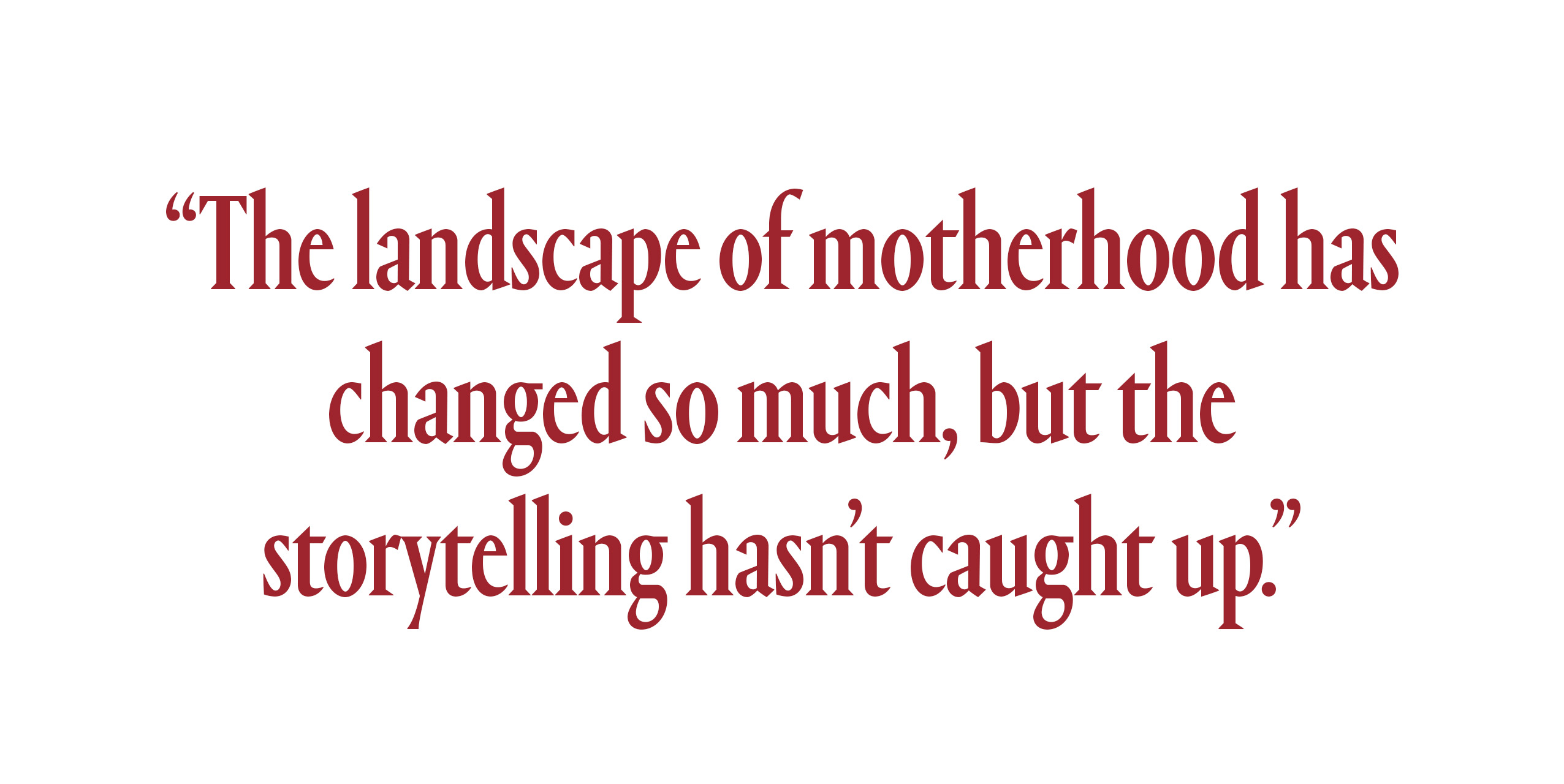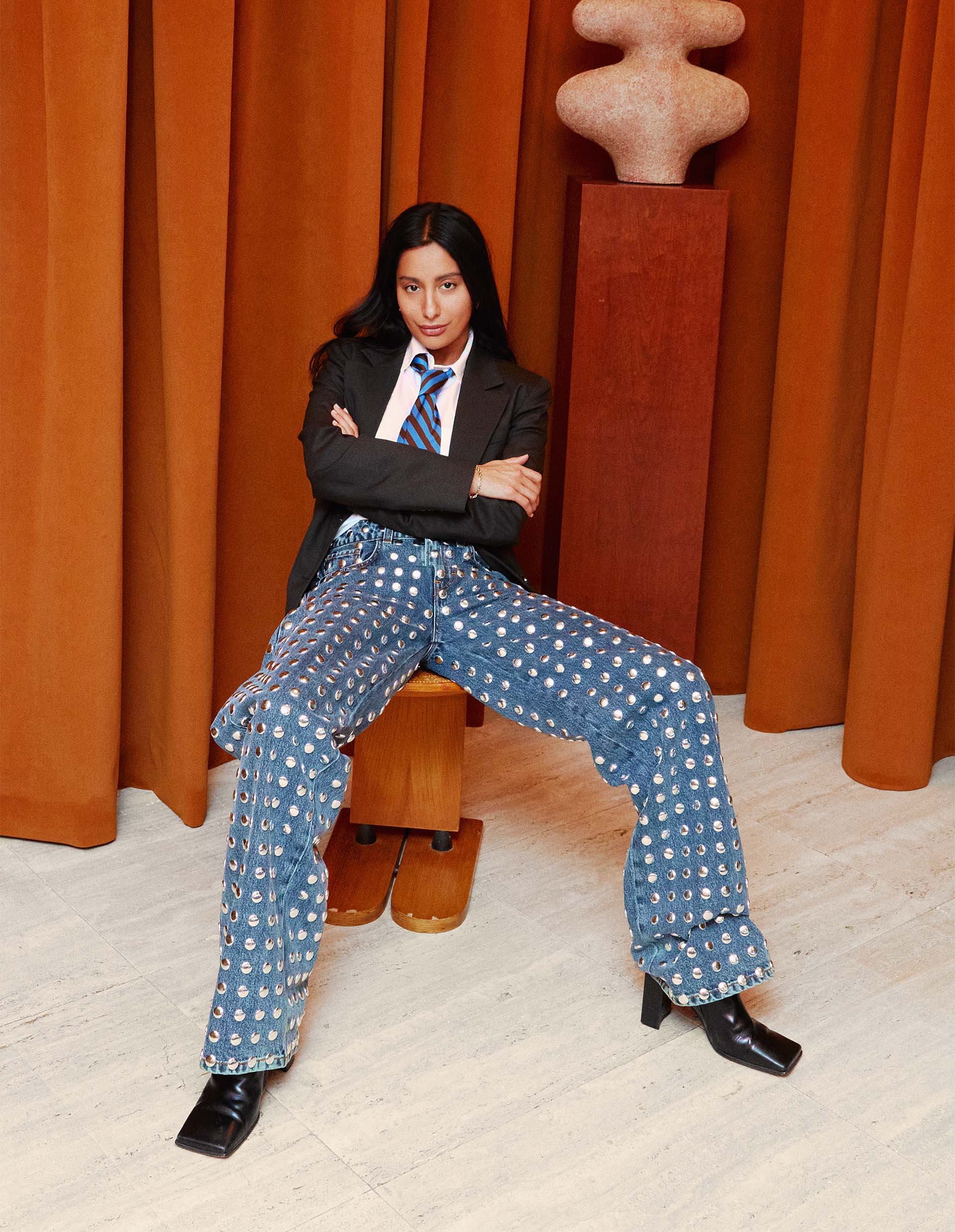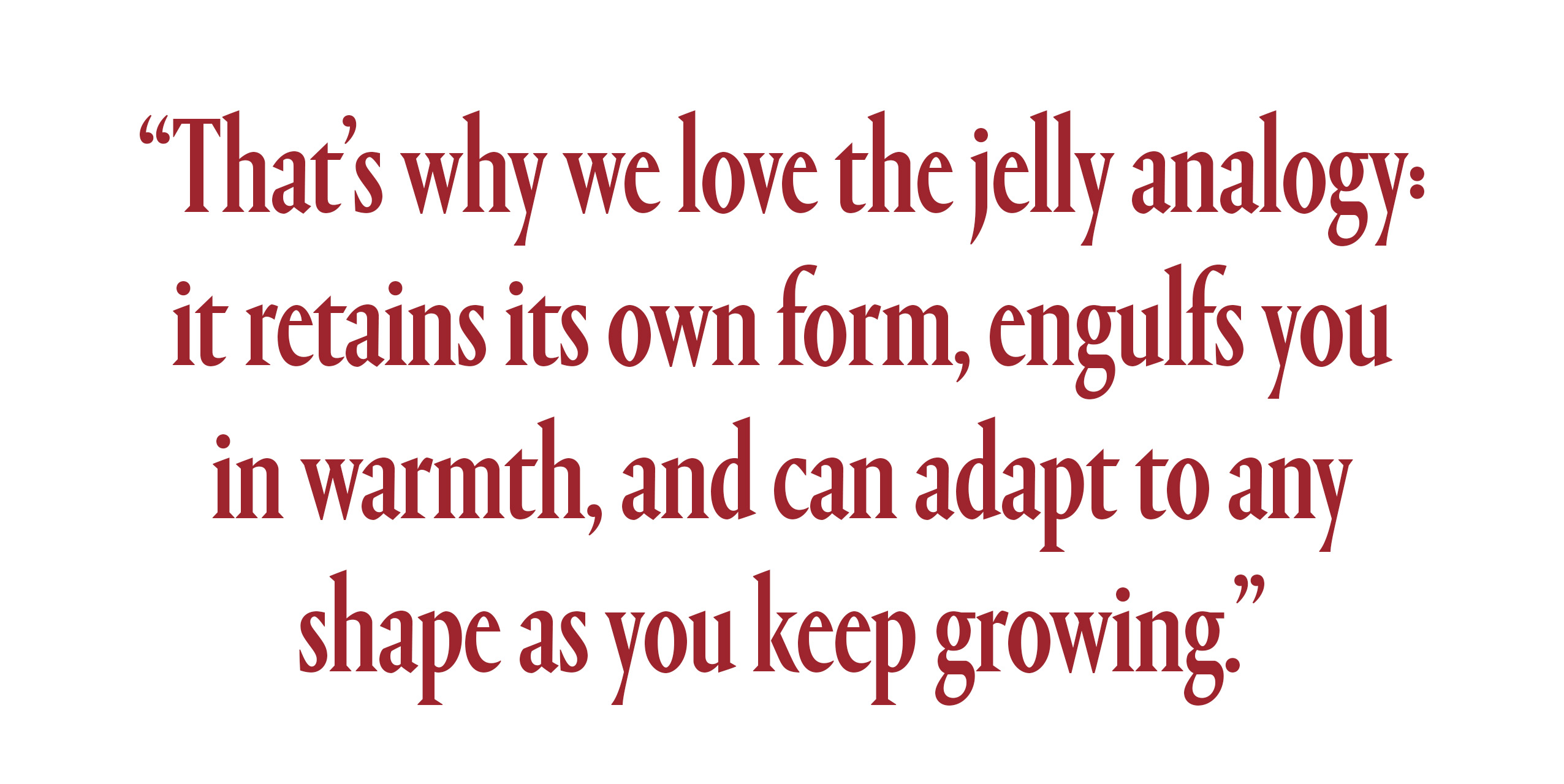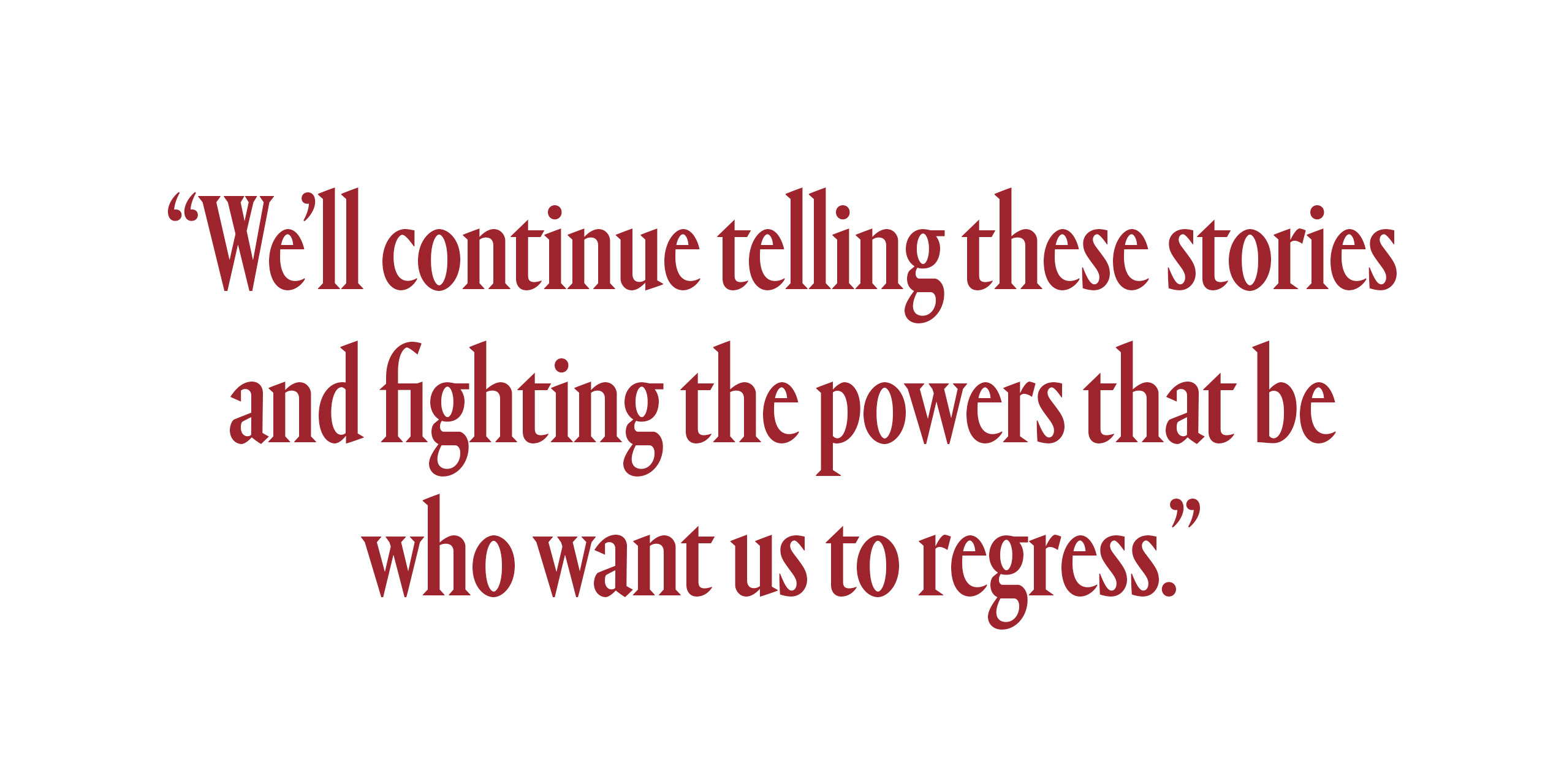
The real highs and lows of motherhood don’t always get sufficient airtime—even in the pages of top parenting books and the chattiest mommy-and-me groups. Things like postpartum sexual awakenings, the loneliness of spending your days babbling to a diaper-clad human, or fantasies of a solo, Bluey-free vacation. For Amrit Tietz and Lauren Levinger, a New York City-based DJ (Tietz) and former creative director living in L.A. (Levinger), these were the “I wish I’d known” moments. The isolating aspects of motherhood that society deems too messy, strange, or unfiltered for open discussion.
While many moms are left to explore these feelings in anxiety-fueled late-night Reddit rabbit holes, anonymous posts on parenting forums, or by stumbling through them firsthand, Tietz and Levinger imagined a place where parents could find conversations on the good, bad, and yeah, ugly parts of parenting.
Enter Spread the Jelly—an independent online platform dedicated to modern motherhood—created by Tietz and Levinger in late 2024. “We wanted to soften that I-wish-someone-had-told-me blindsided feeling of parenting, so we talk about everything on Spread the Jelly—nursing difficulties, the ups-and-downs of IVF, preeclampsia, which I didn’t even know existed until I faced it myself,” says Tietz, 37, mother of two‑year‑old Frankie.
In doing so, Spread the Jelly breaks away from the typical extremes in parenting coverage; the doom-and-gloom clickbait on one side and feel-good rom-coms about moms who can do it all on the other. Instead, it offers unapologetically raw content on nuanced topics like using medical cannabis during pregnancy or birthing a baby “the size of a Thanksgiving turkey” to present a fuller truth—which is that “motherhood is scary, sticky, and hard to navigate, but it also can be this really empowering, amazing, beautiful, joyful, and cool experience where your identity remains very much intact,” says Levinger, 40, mother to three-year-old Bobby.
On a video call in early spring, I spoke with the impossibly cool duo about surviving on fumes, the sanctity of kid-free me-time, and their own “I wish I’d known” moments.

What sparked the idea to launch Spread the Jelly?
Lauren Levinger: Amrit and I have orbited in each other's networks for a long time—she was friends with my husband first and actually DJed at our wedding. When Amrit got pregnant, I had already had my baby. She was the first in her friend group and wanted community and connection with someone who had a child, so she reached out to me. We were supposed to have lunch at my place, but she texted that day, "I think I might be going into emergency labor. I'm so sorry. I hope you haven't already prepared the food."
Amrit Tietz: We found the text the other day and were like, Why was I being so polite? Meanwhile, doctors were cutting me open, and I was like, "So sorry for the inconvenience, Lauren!”
LL: A few months later, we reconnected, and eventually, she came over for that lunch, and we started talking about our respective reproductive journeys, pregnancy experiences, and how different they were. We talked about how we didn’t feel represented in the motherhood platforms that were available to us. For instance, a lot of birth stories are very scary, but mine was great—I had a wonderful, easy labor, and I had fun. We wanted to create an online space that offered a new perspective on the existing discourse around motherhood. That was the genesis of the site.
AT: There’s a lot of fear-mongering around pregnancy and parenting. On one hand, you’ve got tons of factual information, which is important and needed, but not always easy to connect with, and on the other, it’s like, Get ready: it's going to be rough from here! Movies and pop culture depictions don’t help either, with moms portrayed as either disgruntled housewives or that perpetual “wheels-on-the-bus” always nagging and miserable mommy. None of that is what we experience.
Once you become a mom, people often act like that’s your entire identity. Yes, motherhood changes your perspective, but as women, we’re still interested in the same range of things—fashion, culture, sex, art. Most moms we know haven’t lost themselves; they’ve evolved into a new, expanded version. That’s why we love the jelly analogy: it retains its own form, engulfs you in warmth, and can adapt to any shape as you keep growing.

A big part of the website is sharing those “nobody mentioned this” moments. What were some of yours?
LL: I wish I had known it's okay to take time for yourself without feeling guilty about it. I went on my first trip when my son was four months old and left him home with my husband. People would say, “I can't believe you left him already," and ask, "Who's he with?” I would respond, “My husband. His father.” When talking to mothers now, I try to communicate that spending time away from your child and taking time for yourself helps you grow and keeps your identity intact. You’ll change and evolve, but you’re still you—an even more powerful version of yourself.
AT: There’s this attitude in society today that motherhood is relegated to mothers when, really, it’s an everybody thing. Every single human on this planet benefits from the institution of motherhood, but the only people who seem to care about moms are moms. If we didn't tell our own stories, nobody would.
Inviting men into the conversation is really important because, for so long, the information about motherhood has only been presented to women. We need a support system of educated friends, husbands, brothers, and dads to show up in the mom's life. It’s so crucial to present information in a way that's accessible to everybody, so we all can experience less of the I wish I had known.

What are some of the stories shared on the site that have left an impression on you?
AT: So many women go through their fertility journeys, postpartum, and parenting by struggling silently—there's no linear road to motherhood. Or, they feel like they're the outlier because they had an easy pregnancy and delivery, no postpartum depression, and everything's fine. That straightforward experience is actually more of an outlier than vice versa.
Jenny Kaplan wrote a story about doing IVF for six years and then later pursuing surrogacy. She was so transparent, sharing how much IVF costs, how she found a donor, managed the relationship, and what it was like to create a profile [for the surrogacy process]. Jenny’s story might seem unconventional, but it really isn't; 42 percent of adults in America have used fertility treatments or know someone personally who has. So many readers reached out about Jenny’s piece to say, "Thank you for humanizing this experience that’s actually very common but gets overlooked." The landscape of motherhood has changed so much, but the storytelling hasn't caught up.

LL: In Elizabeth De La Piedra’s piece, she talked about parenting through her divorce. We represent different family structures that haven't been at the forefront. Instead of it being about their marriage ending, and it being this terrible thing, she looks at it as a time in her life that was so wonderful. She and her partner both decided it wasn't working anymore, and now, they live in each other's lives and can co-parent and be happy. She speaks about how being able to spend half the time away from her kids, while challenging, has helped her maintain a new identity and gives her time to focus on the things that matter in her life.
AT: One of our launch features, Whitney Mixter, is a lesbian who pursued motherhood alone through IVF. She got pregnant at the end of January 2020 and lost her income when COVID-19 hit. She went into survival mode, thinking, Shit, I’m the only one here. I need to figure this out and do anything to provide for my kid. So, she flew by herself to rural Mississippi and took on a manual labor job while pregnant.
People feel acknowledged for the first time when we speak to stories, like these, outside of the known experience.

Right now, as reproductive rights in the U.S. face unprecedented threats, it’s a frightening time for women. How do you see yourselves using your platform within this new reality?
AT: Challenge accepted; we're just going to be louder. We’ll continue telling these stories and fighting the powers that be who want us to regress.
LL: Amrit and I are fortunate that we don’t truly experience the effects of this legislation [first hand]—I live in California, and she’s in New York—so we’re focusing on inbound essays and stories from areas where it actually impacts the people living there. We host drives and fundraisers with women’s shelters that prioritize women and children and, at a grassroots community level, give back by platforming the activists who are doing the work. And we’ll continue to explicitly tell stories about termination, emergency contraception, IVF, and all of the things we know to be true and valid.

AT: We’ve heard from many members of our community that when we share stories like that of mom Jaycina Almond, who experienced a miscarriage while living in Atlanta, which has an abortion ban, women often reach out directly to the writers. Information about these topics is out there, but it's always on anonymous Facebook groups or deep in the depths of Reddit, so you're like, Can I trust this? I don't know who this person is. People feel safer when we publish these stories because they’re connected to a real person, someone they recognize, rather than just some complicated, jargon-heavy medical article they don’t understand.
A really big part of Spread the Jelly 2.0 is making community networking more accessible with the interactive features, so we're redeveloping the website to have community chat and comments below each feature. Providing that sense of community, especially to women who don't have the luxury or privilege of having a mom group or having comprehensive health care, is everything to us.
LL: Amrit and I say this a lot, but we always knew women wanted to talk about the “sticky stuff”, and Spread the Jelly has validated that so many times over. We've done a few community events that are supposed to wrap up at 9 p.m., but it ends up being groups of mothers sitting at a table and talking until midnight because people don't want to leave. There is just so much to talk about, and we're just starting to scratch the surface. There’s a lot more jelly to spread.







